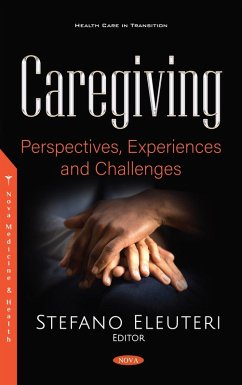A caregiver (usually also known as informal caregiver) is an often unpaid and without formal training (in the related disease) member of a person's social network who helps them with activities of daily living. Caregiving is most commonly used to address impairments related to old age, disability, a disease or a mental disorder. Typical duties of a caregiver might include taking care of someone who has a chronic illness or disease; managing medications or talking to doctors and nurses on someone's behalf; helping to bathe or dress someone who is frail or disabled; or taking care of household chores, meals or processes both formal and informal documentation related to health for someone who cannot do these things alone. With an increasingly aging population in all developed societies, the role of caregiver has been increasingly recognized as an important one, both functionally and economically. Caregiving reflects various possible experiences with potentially infinite perspectives. Many organizations that provide support for persons with disabilities have developed various forms of support for carers as well. However, different challenges for this category of people are still strong: it involves changes within the family system, and some caregivers may not possess the necessary resources to deal with caregiving demands. Many caregivers assume the caregiver role with little or no preparation and have to learn to deal with several aspects of care in a very short time. Literature shows that informal caregivers tend to experience more depressive symptoms and poorer physical health outcomes in comparison to non-caregivers. Moreover, informal caregivers have been repeatedly acknowledged as a model of chronic stress, due to the high level of daily stress that caregivers experience. All of these changes may lead to a set of biopsychosocial disorders named as burden, which results from the obligation to provide care, specifically within the context of a chronic or long-term disease. Caregiver burden has been conceptualized using a multidimensional perspective, in terms of physical, emotional, social and financial difficulties/problems experienced by the caregiver. In this state of the art, this book aims to present some challenges caregivers may encounter during their role, suggesting also some possible perspectives useful for clinicians to address the different experiences of informal caregivers, also connected to the different pathologies the patients they care to suffer from and to the different relationships they have with them.
Dieser Download kann aus rechtlichen Gründen nur mit Rechnungsadresse in A, B, BG, CY, CZ, D, DK, EW, E, FIN, F, GR, HR, H, IRL, I, LT, L, LR, M, NL, PL, P, R, S, SLO, SK ausgeliefert werden.









